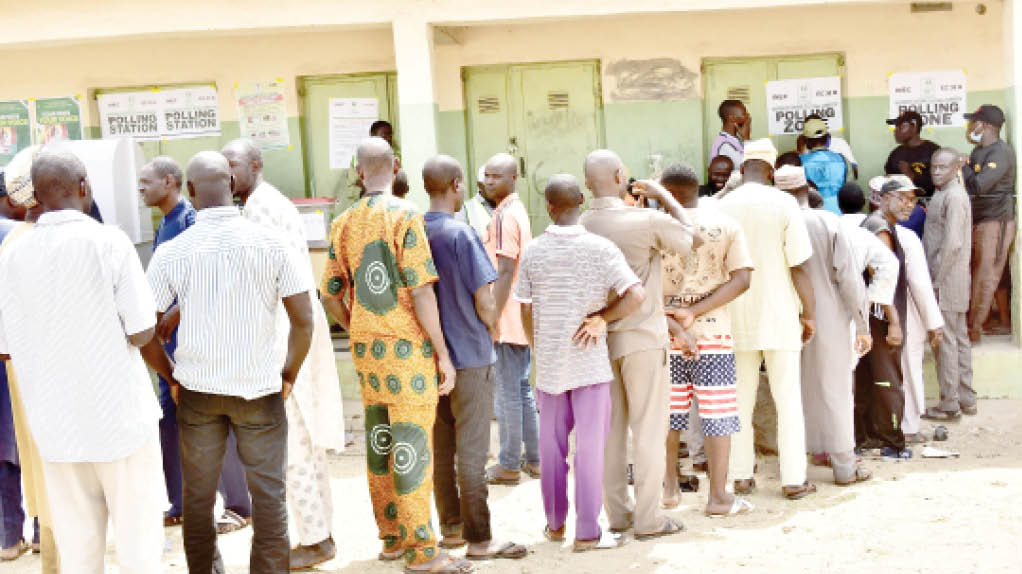There are at least 3 take homes for me from this election cycle about Nigerians – a couple of which came a bit as an unpleasant surprise.
First and foremost, I learned that 90 per cent of us (no matter our level of Western education or exposure) are either very tribalistic or religiously biased or both. And you will find in this piece that all other lessons learned will feed off from this. Let me confess this upfront. I mentioned to a friend that even I have had to do a lot of self-introspection about my biases. I’m proudly an Edo man albeit with a Yoruba mum but truth be told; I’m looking in the mirror and I’m not liking what I’m seeing. I think Seun Anikulapo-Kuti put it a bit more philosophically the other day on a YouTube podcast.
He says when it comes to leadership, most Nigerians just want a change of tribe, not a change of the (rotten) system. As educated Nigerians, we try to run under this self-adulation garb that we are bigger than ethnic or religious sentiments. Now I realised this opinion of oneself is oftentimes tongue-in-cheek or the biases are so deep-seethed that we are for the most part unconscious of them. Or perhaps we are conscious of them, but decide to self-deny. But like they say, your character is like a smoke; it most certainly would come out no matter how well you hide it.
Despite who voiced or coined the personal or tribal rant, the politics of “Emilokanism” is entrenched in our psyche as a people.
2 burnt to death as gunmen open fire on vehicle in Nasarawa
Fear heightens in Kano ahead of gov’ship poll
The second lesson I learned was that the most intelligent and educated among us are not necessarily the most rational. Nigerian elite only believes in science only if it serves their sentimental views. They conveniently forget that science and sentiments are mutually exclusive.
I have close friends, very brilliant and lucid individuals on a normal day, who claimed that if Peter Obi didn’t win the presidential election, it would be because the elections were massively rigged. When I asked pointedly what informed this rather definitive opinion, all I got was fuzzy logic at best. If I attempted to explain that simple arithmetic across country demography, ethnicity, historical voting patterns, availability of political structures, etc didn’t support their claims, I got more emotional outbursts.
For instance, how else do you explain to an educated mind that a slogan like “the people are our structure” when you don’t have a critical mass of supporters in 24 out of 36 states does not exist in the realm of science? How else can you wean such individual off his Aladdin-like world where social media polls in Nigeria have suddenly become the basis of predicting electoral outcomes?
You would assume a well-informed man would know that majority of the electorate who determines Nigerian leaders can’t afford smartphones or have access to computer-based information system, right? Well, not the Obidients. Last time I checked Nigeria has almost 80 per cent illiterate but very enfranchised and passionate voting population, half of whom don’t even live where there’s internet access. A no brainer, you would say. But here we are. Loads of sentiments but a lot less common sense.
My last take home didn’t come too much as a shock but still annoying all the same. Many clerics don’t hear or see or obey anything from God. What they do is impart their wishful thinking on their ever-impressionable signs-and-wonders-seeking congregation. Never before had I seen such blatant partisanship, reckless utterances, incendiary pronouncements, religious bigotry and of course fake prophetic visions being churned out of pulpits across the country.
In Nigeria, a typical Christian would pray and fast to God to gift the country a befitting leader; one who can take us out of the current doldrums we found ourselves. You’d expect that our Christian brother would wait on the Lord and with faith accept God’s divine answer to his prayers. But not so. If the outcome is not according to personal wishes or biases, it’s not divine enough and must be rejected in its entirety. It’s almost like we are now dictating to God what a miracle or answered prayer should look like.
Just this last Sunday, March 5, a popular firebrand pastor from her pulpit instructed her congregation never to accept Asiwaju Bola Tinubu as their leader. If this is not close to a legal offence, what about the moral bit? Whatever happened to the clear biblical instruction of Romans 13:1-2 (Let everyone be subject to the governing authorities, for there is no authority except that which God has established. The authorities that exist have been established by God)? Bottom line is that the close friend who witnessed this shameful charade and who had been a faithful member of the church for years told me that he and his family have decided to stop attending this church.
I have also heard insinuations from a couple of my Christian brethren to the extent that they do not expect the president-elect to survive his presidency, while hoping that their perceived winner will be installed. The contradictions of what being Christlike are worrisome.
In Nigeria, the last couple of decades has thrown up super-rich superstar pastors whose conducts make some believers like me wince with pain. Their modus operandi is selling prosperity solely to their members and not love. In this election cycle, they have impugned the ability of their congregation to think for themselves, whipping up religious sentiments and making provocative statements. All these must stop so that we can move ahead as a country.
Ojeikere, a public affairs analyst, sent this piece from Abuja

 Join Daily Trust WhatsApp Community For Quick Access To News and Happenings Around You.
Join Daily Trust WhatsApp Community For Quick Access To News and Happenings Around You.


